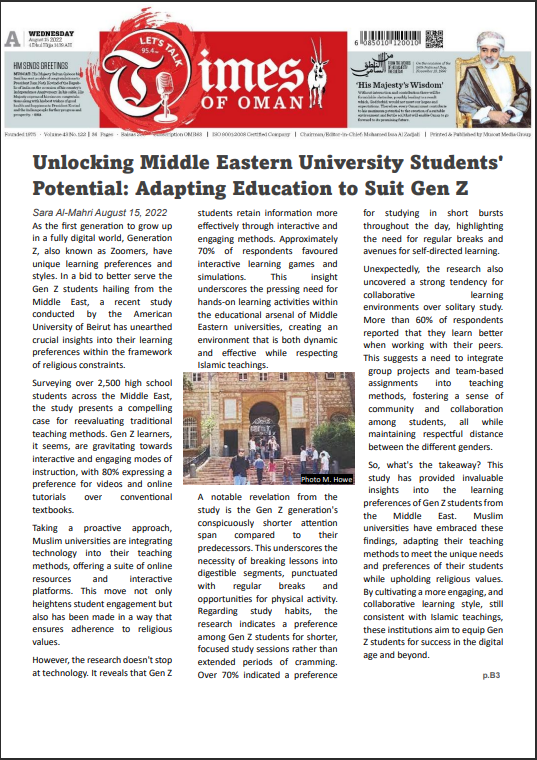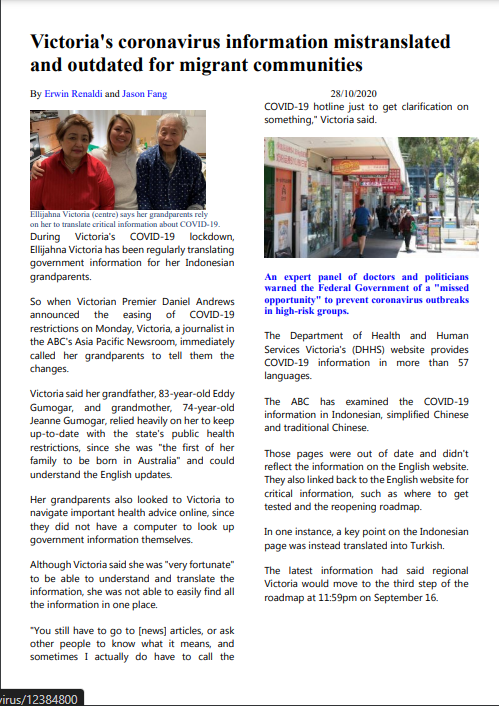
Summary
A study from the American University of Beirut looked at how Gen Z students in the Middle East like to learn, especially considering their digital upbringing and religious beliefs. The author had found that these students prefer interactive and online learning over traditional methods like textbooks. I agree with the author's arguments because he gives a lot of eligible references. Such as Muslim universities are using technology to make learning more engaging while respecting religious values. The study also showed that Gen Z students learn better through interactive methods like games and simulations. They prefer studying in short bursts throughout the day rather than cramming for long periods. One of the main strengths of this article is Gen Z students like to learn together with their peers rather than alone. This means that group projects and team assignments are important for them. Muslim universities are adapting their teaching methods to include more collaborative learning while maintaining respect for religious values and gender separation. Overall, the study helps universities understand how to teach Gen Z students effectively. By using technology, interactive methods, and group learning, they aim to prepare these students for success in the digital world while staying in religious works.

Summary
In this newspaper article Renaldi and Fang (2020) reports about Victoria’s coronavirus information mistranslation. During the COVID-19 lockdown in Victoria has been translating government information for her Indonesian grandparents who rely on her to understand the updates. Despite the Department of Health and Human Services Victoria providing COVID-19 information in over fifty-seven languages including Indonesian and Chinese. Moreover, the translated pages were found to be outdated and did not accurately reflect the information available on the English website. This created confusion and made it difficult for migrant communities to access critical health advice. In conclusion, Ellijahna Victoria helps her grandparents understand COVID-19 news, but the translated information is old and doesn't match what's on the English website.Summary